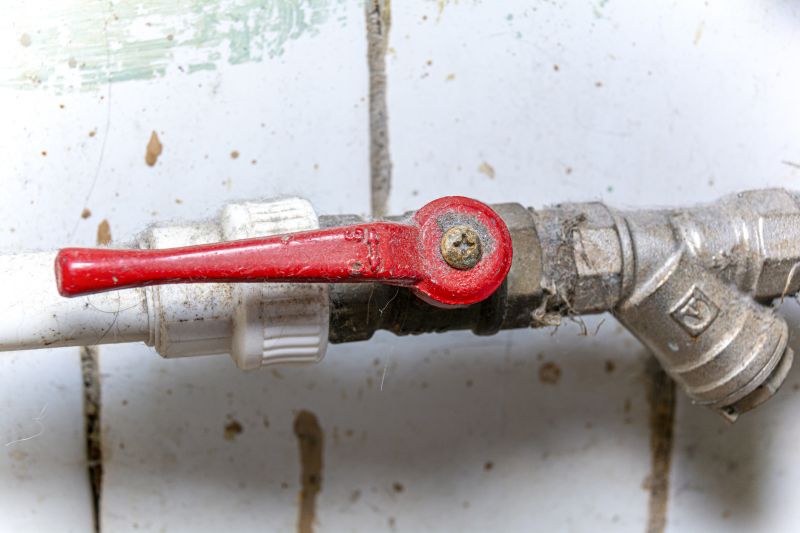Leading Products For Efficient Shut Off Valve Replacement Projects
Select from high-performance products designed to simplify valve replacement and enhance plumbing system reliability.
 Shut off valves are essential components in plumbing systems, providing a means to control water flow to specific fixtures or sections of a building. When a shut off valve malfunctions, leaks, or requires replacement, selecting the appropriate product is crucial for maintaining system integrity and ensuring ease of use. Replacement valves come in a variety of designs, materials, and sizes, each suited to different applications and plumbing configurations. Understanding the different types and features available can help homeowners and professionals make informed choices.
Shut off valves are essential components in plumbing systems, providing a means to control water flow to specific fixtures or sections of a building. When a shut off valve malfunctions, leaks, or requires replacement, selecting the appropriate product is crucial for maintaining system integrity and ensuring ease of use. Replacement valves come in a variety of designs, materials, and sizes, each suited to different applications and plumbing configurations. Understanding the different types and features available can help homeowners and professionals make informed choices.
Top Overall Option
Multi-Purpose Shut Off Valve
A versatile multi-purpose shut off valve offers compatibility with various pipe sizes and connection types, making it suitable for many plumbing applications. Its durable construction and straightforward operation facilitate reliable control of water flow, and its design allows for easy installation and maintenance. This type of valve is often made from corrosion-resistant materials, ensuring longevity in different environments.
Types of Products For Shut Off Valve Replacements
Ball Valves
Ball valves feature a spherical disc that controls flow with a simple quarter-turn operation, ideal for quick shut-offs.
Gate Valves
Gate valves use a sliding gate mechanism to start or stop flow, suitable for applications requiring full flow or complete shut-off.
Angle Valves
Designed for tight spaces, angle valves redirect flow at a 90-degree angle and are commonly used in sink and toilet connections.
Compression Valves
Compression valves connect to existing pipes using compression fittings, offering a secure and leak-resistant seal.
Quarter Turn Valves
These valves operate with a 90-degree turn, providing quick and easy control over water flow.
Multi-Turn Valves
Multi-turn valves require multiple turns to open or close, allowing for precise flow regulation.
Plastic Shut Off Valves
Made from durable plastics, these valves are lightweight and resistant to corrosion, suitable for non-pressurized applications.
Brass Valves
Brass valves are highly durable and resistant to corrosion, making them a common choice for residential plumbing.
Stainless Steel Valves
Offering excellent corrosion resistance, stainless steel valves are suitable for harsh environments and high-pressure systems.
Compression Fittings
Used in conjunction with shut off valves, these fittings provide a secure connection to existing pipes.
Soldered Shut Off Valves
Designed for permanent installation, these valves are soldered directly onto copper pipes for a leak-proof connection.
Clamp-On Valves
Clamp-on valves attach externally to pipes, allowing for easy installation and removal without cutting pipes.
Popular Choices
Widely used for their quick operation and reliability in controlling water flow.
Commonly found in residential fixtures, valued for their space-saving design.
Favored for their ease of installation and secure sealing capabilities.
Popular for their durability and resistance to corrosion in household plumbing.
Chosen for high-pressure applications and environments prone to corrosion.
Preferred for their convenience and rapid operation.
Selected for lightweight applications and areas where corrosion might be an issue.
Ideal for permanent, leak-proof connections in plumbing systems.
Valuable for retrofit projects where pipe cutting is undesirable.
Flexible options suitable for various pipe sizes and configurations.
The process of replacing a shut off valve involves assessing the existing setup, selecting compatible products, and ensuring proper installation. Properly functioning shut off valves help prevent water damage by allowing quick isolation of problematic sections, especially during repairs or emergencies. Whether replacing a worn-out valve or upgrading to a more durable option, choosing the right product can contribute to the longevity and reliability of your plumbing system.
In addition to traditional ball valves and gate valves, there are specialized options designed for specific applications, such as angle valves for tight spaces or multi-turn valves for precise control. Material selection is also important; brass, bronze, and stainless steel are common choices, each offering different levels of corrosion resistance and durability. Consideration of the valve’s size, connection type, and compatibility with existing plumbing fittings is essential to ensure a seamless replacement process. Proper maintenance and periodic inspection can extend the lifespan of the new valve and prevent future issues.
Key Buying Considerations
- Material compatibility with existing plumbing to prevent corrosion and leaks.
- Pipe size and connection type to ensure proper fit and sealing.
- Ease of operation, whether manual or automatic control options are needed.
- Space constraints in the installation area, influencing valve shape and size.
- Flow control requirements, including full shut-off or regulated flow.
- Durability and resistance to corrosion, especially in wet or harsh environments.
- Ease of installation and maintenance, considering DIY capabilities or professional help.
- Pressure ratings suitable for your plumbing system's specifications.
- Compliance with local plumbing codes and standards.
- Availability of replacement parts and support for long-term maintenance.
- Type of valve (ball, gate, angle, etc.) that best suits the specific application.
- Cost considerations balanced with quality and durability.
- Brand reputation and customer reviews for reliability insights.
- Compatibility with different pipe materials like copper, PVC, or PEX.
- Additional features such as leak detection or automated shut-off capabilities.
